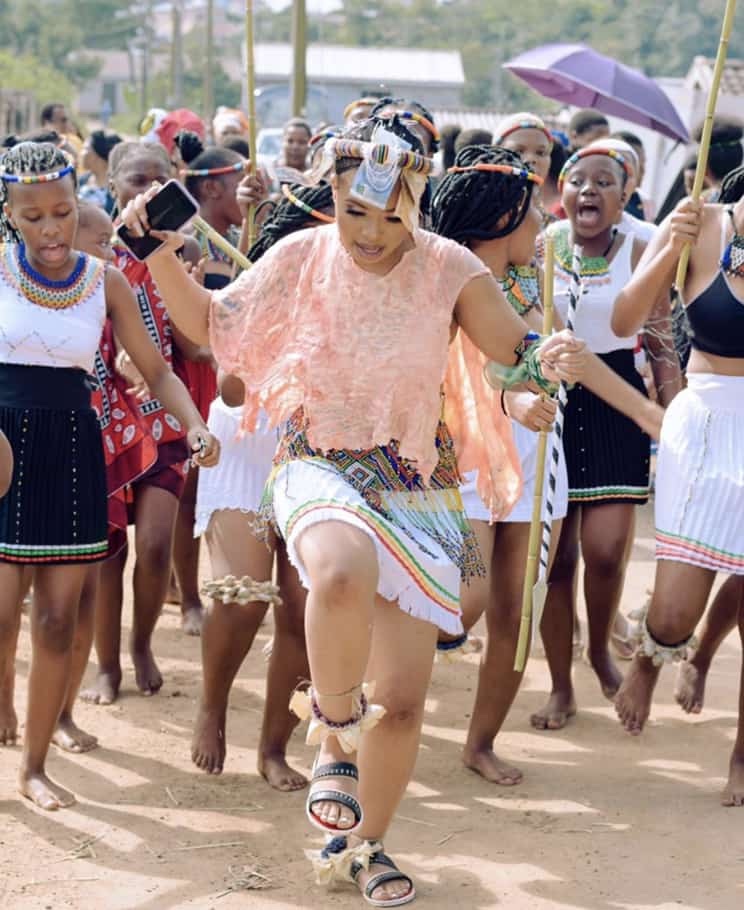The upcoming of age: UMEMULO

In traditional umemulo, the idea that a female has kept her virginity until she is ready to find a long-term mate is at the center. But, it is rumored that in some modern circles, women are participating in the ritual much later in life, after they have lost their virginity. A growing number of teenage ladies are also avoiding the umemulo ritual since it is seen as embarrassing in contemporary culture. Even in small towns, females are starting to revolt against the notion. Some contend that without this significant ritual, girls are more prone to engage in early sexual activity, become pregnant outside of marriage, and contract STDs.
The umemulo ceremony is a coming-of-age ritual that is carried out when a woman reaches a marriageable age, typically older than 21, and is presented to the community as a virgin as a public announcement of the young girl's readiness to be courted and enter into a marriage that is blessed by her parents. Nonetheless, even though the ceremony doesn't occur until a girl is a young adult, preparation for it begins years earlier, when a female gets her first period. She begins receiving lessons about what it means to be a Zulu girl, woman, and mother on that day forward.Girls in some KwaZulu-Natal villages undergo monthly virginity tests until they turn 21 or get married. These programs teach students about life and the obstacles they will face as women in addition to testing their virginity. A girl learns self-respect and how to stand up for herself in this situation.
The girl, known as the bride, spends at least a week indoors before the umemulo ceremony and is not allowed to be seen by anybody, not even her parents. The only guests are neighborhood females who act as her "bridesmaids" and come over at night to dance with her. The bride's family purchases a cow for her and gives it to her the night before the wedding. She is then permitted to greet her cow outside after donning a blanket. The girls sing as they welcome the cow and then enter the chamber. As the family boys and prospective husbands butcher the cow, spirits are at an all-time high.Cow fat is utilized to wrap the bride on the day of the ceremony, and every portion of the cow has a role to perform in the ritual. This fat must remain intact because if it does, it will be assumed that the girl is no longer virginal.
All the girls must spend the night beside the river the night before the event. They sing as they leave the bride's house in the middle of the night, dressed only in a blanket as they make their way to the river. They spend the evening by the river, singing and dancing while seated around a fire. The bride is whisked away and tested in the wee hours of the morning to see whether or not she is still a virgin. The older women sing and shout as soon as the test is over to signal that the ceremony can proceed as scheduled.
The girls take a wash in the river after that and wait until the groom calls for them. All of the bridesmaids are clothed in traditional Zulu garb, and the bride is given an umkhonto spear (a symbol of power and triumph) as a gift. As she arrives in front of her house, she will hurl the spear down, and wherever it lands, her father, the household's chief, will run, yelling words of thanks and dancing to express his gratitude and pride.The girl's family and the rest of the neighborhood will join in the celebrations after the girls have washed themselves. Visitors attach gifts of money to the cloth on the young woman's head while she points a spear at them as they approach.
The cash is given to her for two reasons: first, it helps her set up a home financially, and second, it expresses the community's support for her upcoming marriage.
Our culture
ReplyDeleteI love our culture sheim ✅❤️
ReplyDeleteVery informative . I wish this was commonly practiced like in the olden days ,it will save a lot of young women from making bad decisions
ReplyDeleteBeing able to educate other's about our diverse cultures and beliefs is indeed a positive and great way of learning other cultures as a wise man once said "he who knows one knows none "
ReplyDeleteThis is every parents moment....keep us posted on your content ...informative
ReplyDeleteProudly moment to the parents on this Memulo day
ReplyDeleteLove how you have outlined and explained the upcoming of age in our culture. Keep them coming.
ReplyDeleteOur culture over everything ❤️
ReplyDeleteBig up to our culture when it comes to UMEMULO
ReplyDeleteSo Sad that I wish to have umemulo but the boys were sent by Satan. It is a nice culture and a very beautiful memory to young Girls. Virginity saves you from a lots of things such as STIs an all those sexual transmitted diseases.
ReplyDeleteOur culture over everything proudly South African
ReplyDeleteReally our culture is beautiful like everything from Attire to food number one
ReplyDeleteThis is so educational and interesting, I never knew the significance of the spear.
ReplyDelete